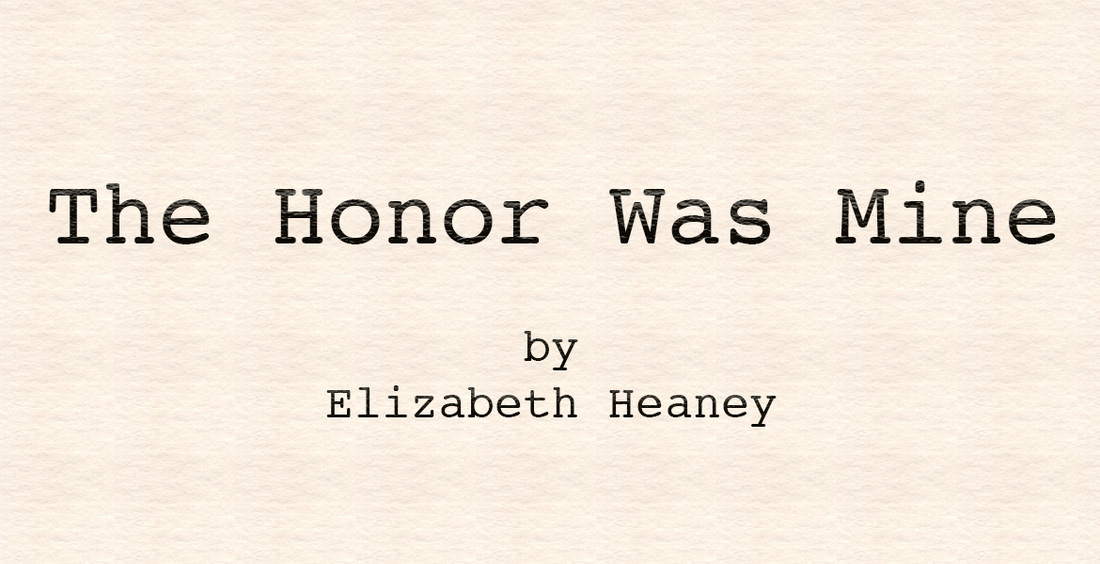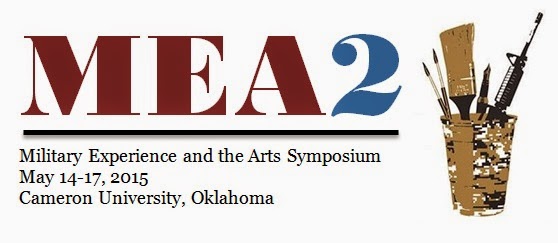 Last month I had the opportunity to offer a couple of writing workshops at the second annual Military Experience and the Arts conference in Lawton, Oklahoma. I’d like to give you a sense of what those workshops were like because I left there with such a full heart. The group included men and women, combat veterans (from Korea, Vietnam, the First Gulf War, Iraq and Afghanistan), military spouses and a few people who grew up in military families. We met in a classroom at Cameron University, gathering around the tables that served as desks with blank white-boards covering the walls around us. For the most part, the attendees didn’t know each other; most of them would say they weren’t writers. They showed up to see what it would be like to write about the things their hearts still carried from many years in the military: friends lost, months – or years – in combat, the huge chasm between them and the civilian world, the sense of pride and service they wore along with those uniforms. We wrote from prompts (noise, uniform, leaving, everything changed when…), writing for just a few minutes as a quick warm-up. When we stopped writing, anyone who wanted to could read their piece of writing to the group, and then (the part they all loved the best) the group would echo back to the writer the words and phrases that stood out to us in their piece. Random words and phrases floated back to the writer: “forever gone” . . . “I wanted home” . . . “never been more scared” . . . “mortar’s scream, then black silence.” We wrote longer pieces, too – up to twenty minutes on the more complex prompts. And then the echo back part would happen again. These veterans and spouses and family members wrote poetry or prose, fiction or non-fiction, or maybe a list of words that came to mind. I can still see them, hunched over those ugly-but-functional classroom tables, furrowed brows, pens scratching on paper, sighs floating through the air as they wrote. Sometimes one of them would stare off into space for a brief moment, trying to capture the flash of memory pressing up from inside: the remembrance of sound or silence; the smell of mud and blood; the goodbyes they never got to speak; the days leading to leaving, the nights waiting to go home. These were their rules of engagement: just keep writing, don’t think too much, don’t edit, don’t need it to make sense, write anything that comes to mind or heart. Reading their pieces, their voices became choked with emotion. The room turned pristinely quiet and attentive, a cocoon holding this tribe of warriors. They read about the buddy they’ll never forget, the pressure of saying goodbye to loved ones for yet another long year of combat, the taut laces of fear that stitched together moments of fighting. One after another overcame their hesitancy to offer what they wrote; one after another had to pause. We all waited patiently for the reader to regain enough composure to read the next sentences. Sometimes there was more than one pause to stave off the tears that were brimming. The room kept getting more and more intimate, more and more attuned to the words being read, more and more holy. Afterward, some of the group told me they had never written like this before – or had never written about that moment, about that friend or that heartbreak. As everyone lingered and talked around those scattered tables, I knew bonds had been formed, in between the words and the silent receiving of them. Out there on the wide plains of Oklahoma, men and women were finding their way home, word by beautiful word. danny johnson says:
 Dear Friends, I’m so very pleased to let you know The Honor Was Mine, my book about counseling combat veterans, has just gotten a contract for publication. I truly couldn’t be happier. Wild thanks to Renee Fountain of Gandolfo Helin & Fountain Literary Management – she’s been terrific to work with; I am ever-grateful she understood the heart of the book. Release date is Sept. 2016 (go ahead . . . I’ll wait while you mark your calendar). : ) Thanks to all who’ve been supportive along the way. I hope these soldier stories are just getting started on their journey. Previous Comments:Bob says:
danny johnson says:
People ask me what was the most touching (or most difficult) thing about working with the military, and there’s innumerable rich or challenging moments I could list on both sides of that question. I’ll mention a few in my next posts . . . I’d just finished a briefing to a large auditorium of soldiers, telling them about the counseling services I offered on the base. I kept emphasizing that it was confidential – nothing would go in their records. My cell phone rang as I walked back across the base to my office. “I just heard you talk about your program. I never knew we could get counseling that wouldn’t go into our records.” I assured him: no notes, nothing in his files, his commanders would never know he talked to me. “I’ve been desperate. I’ve been praying for something that would help me. I think this might be it,” he said, his voice choked with emotion. “When can I come in?” “I’ll be in my office in ten minutes and . . .” I said; before I could finish my sentence, he said, “I’ll be there.” A few minutes later, the high-ranking officer dropped into the chair across from mine and put his head into his hands. When he looked up, his black hair was swirled and spiked from the way he’d pushed his hands through his hair. His face looked sadder than any face I’d seen in a long time, his eyes filled with angst and his mouth tight with tension. He began to talk about an issue he’d been struggling with for years – an issue that would interfere with his career if it became known. Recent work assignments had dramatically increased his stress levels, and he was beginning to crumble with the tension of his personal issue and the job stress. He had never spoken to anyone about his concerns, and he cried as he told me about how unbearable things had started to feel. When our time ran out on that first day, I asked if he wanted to come back the next day. He wordlessly nodded and thanked me profusely as he left my office. The next day, he again poured out all the anguish he’d been trying to manage. He came in a third time in that first week. I felt like I was watching him find some steady ground under his feet after years of treading roiling, dangerous waters of stress and secrets. A few days after his third session, he called to let me know he’d been temporarily assigned to a distant base for a project. He told me our conversations had been greatly helpful, and he would call me as soon as he returned. Weeks passed, and I didn’t hear from him. I thought of him often, and kept hoping he was still doing well. The day before I was leaving that base to move to a new assignment, he called to tell me he was back from his project and wanted to continue our exchanges. When I told him I was leaving and wouldn’t be able to talk to him, he instantly got choked up, “What am I going to do? I need to talk to you.” I assured him he could continue his work with the counselor who was replacing me. “But I don’t want to talk to someone else. You already know me. You already helped me. I don’t want to start over again.” I heard the despair creeping back into his voice. “I’m so sorry,” I said, “I have to hand you off to the new counselor.” According to my contract, I was not allowed to have contact with service members once I left a particular base. While I could see the reasoning behind this restriction (wanting soldiers to access the arriving counselor rather than trying to work long-distance with the departing one), I chafed at it. And in this instance, as the officer said good bye and hung up, I felt bad for sticking with the rules. All the reasonable logic in the world didn’t weigh an ounce when up against the anguish that man was swimming in. To this day, I wonder what happened to that officer. I wonder if he got more help. I wonder so often how he’s doing and how that issue unfolded. And I feel I made the wrong choice. I stuck with the rules; I did my job as assigned. And I regret it. Previous Comments:Sara pearson says:
|
Elizabeth Heaney - AuthorClinical Psychologist, teacher, private counselor. She speaks and writes about her work with service members. Archives
November 2020
Categories
All
|
|
All content (C) Elizabeth Heaney except where noted. All rights reserved, 2016.
Web design by GraphicMedia Design
|

 RSS Feed
RSS Feed